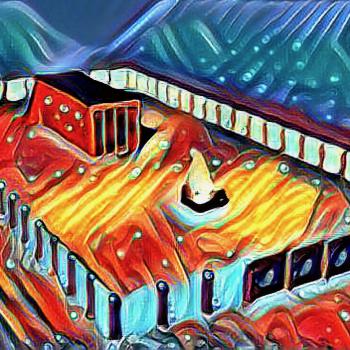If thou wilt be perfect. Great enterprises are always left to the free choice of those who hear of them. – Jerome [1]
Perfection is attainable. Perfection is really something we can grasp. However, none of us are perfect, not in our sense of the word.
Jerome and the Early Church Fathers don’t negate this Scripture one bit. So maybe there’s a difference in the way they look at perfection. In fact, I believe there is.
i. Perfect has a different meaning in the New Testament
We think of perfection as something that is faster than a speeding bullet, and leaps over a building in a single bound . . . Superman . . . invincible. “When I reach that point in my Christian life, then I’ll be able to really do something for God! I’m waiting to be perfect.”
That’s not the New Testament definition of perfect. It doesn’t mean flawless. It doesn’t mean invincible or untouchable. Perfectionism is probably a little closer to what we’re thinking of.
Perfectionism is not the New Testament concept of perfect.
ii. Perfect is similar to complete
Perfect means whole. It can even mean mature.
We have a modern day term that gets a lot of negative press because we associate it with Eastern Asian religions. However, it’s a little closer to the Biblical term perfect, and that’s the term holistic. It carries the idea that we are a complete being: body, soul, and spirit. We can be mindful of our whole self in our daily walk. That’s a little closer to the definition of perfect than Superman.
on the offer of perfection
iii. Jesus offers the Rich Man perfection
This is a valid offer of perfection. Not only that, but Jesus offers him the possibility of being the 13th Disciple.
Here is a man whose life is torn in two. You don’t see it on the surface, but he desperately pleads with God and keeps asking Him questions until he finds out the answer. Then when he discovers the answer, it’s too great for him because inwardly he’s torn between his allegiance to Jehovah and his allegiance to his money, his possessions, and his family name. He’s torn.
When Jesus says “Blessed are the poor in spirit,” He has people like this in mind (Matthew 5.3). To the person torn by double-mindedness, or torn by contrary allegiances, things dividing our time or our schedule, our resources and our money, and our family; God offers wholeness (James 4.7-10). God offers perfection, a complete life, wholly lived before Him, tying up all of the loose ends, and bringing it all into the Kingdom of God.
iv. Jesus offers healing for the soul or wholeness
“If you would be perfect . . .”
Simplicity calls us to this, to one Divine Center, to rest our house solely on the sure foundation, on the rock of Christ and nothing else.
Afterword:
I was talking to a minister today, one that I’ve always considered to be a strong person physically and emotionally. He’s a strong leader as well. However, he has found himself facing a difficult time: emotional issues, coping, anger, and things that he hadn’t quite faced before. So he has been seeking help in ways that he hasn’t before from counselors and people in those specialities.
Before it all, he considered himself so strong, thinking that he could just pray and exercise the Fruit of the Spirit of Self-Control or spiritual strengths, and it would cure any problem. Certainly it can, but he found himself in a place where he needed a both/and approach that would help him physically.
That brings us back around to where we are in this article, with perfectionism vs. the holistic idea of perfect, whole, complete. That’s really what Jesus is offering the Rich Young Ruler when He says “If thou would be perfect . . .”
So I want to leave you with the thought that simplicity is something that goes far deeper than our surface level issues like organizing our life a little more, or organizing our space, or organizing the space and time that we live in, or organizing our finances. Simplicity can reach deep into our lives as we begin to understand what it means to be whole in the Lord.
As we close out this series, I want to encourage you to do your own studies on this ancient virtue that was talked about by the Early Church Fathers, and even in classic Greek literature.
Go ahead and view the other parts of the series when you have a chance. I hope it encourages you in your Christian walk.[2]
notes:
[1] Jerome, “The Letters of St. Jerome: To Pammachis,” in Jerome: Letters and Select Works, vol. 6 of Nicene and Post-Nicene Fathers, ed. Philip A. Schaff and Henry Wace (Grand Rapids, MI: Wm. B. Eerdmans, 1892), http://www.ccel.org/ccel/schaff/npnf206.v.LXVI.html (accessed November 6, 2014).
[2] As previously published: Jared Ingle, “Simplicity and the Rich Young Ruler.”Simplicity: Clement’s stark conclusions about the Rich Young Ruler
Simplicity: Origen on the allegiances of the Rich Young Ruler













